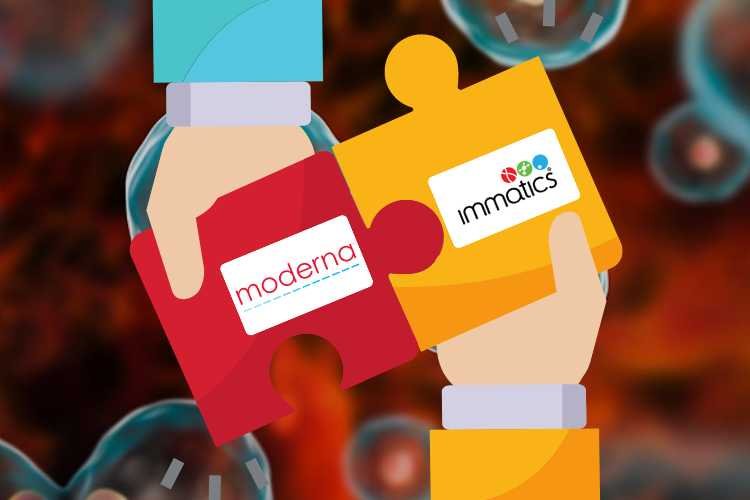Moderna is intensifying its focus on cancer vaccines and cell therapies through a newly announced research partnership with Immatics, a collaboration that could potentially yield over $1.7 billion in milestones. This significant agreement begins with an upfront payment of $120 million and involves the development of mRNA-enabled in vivo expressed TCER molecules, aimed at creating innovative cancer vaccines, bispecifics, and cell therapies.
Both Moderna and Immatics are contributing existing programs to this partnership. Immatics is offering its IMA203 PRAME TCR-T, which will be combined with Moderna’s investigational PRAME mRNA cancer vaccine. Importantly, both companies will retain ownership of their respective programs.
In return for its collaboration, Immatics will receive the upfront payment along with research funding and the possibility of earning up to $1.7 billion in development, regulatory, and commercial milestones, contingent on successful outcomes. The collaboration also includes royalties for sales of TCER products and specific vaccines arising from their joint efforts. Additionally, Immatics has the option to participate in a global profit and loss sharing arrangement for the most advanced candidate to emerge from this partnership.
“We are excited to embark on this strategic collaboration with Immatics, a pioneer in developing innovative cancer immunotherapies. This partnership presents a groundbreaking opportunity to leverage our mRNA technology alongside Immatics’ TCR platform, potentially diversifying and augmenting the way we approach cancer treatment. We believe this collaboration will accelerate the development of novel oncology therapies and bring us one step closer to providing significant benefits for patients with high unmet medical needs.”
– Rose Loughlin, Ph.D., Moderna’s Senior Vice President for Research and Early Development.
Clinical development and commercialization will be led by Moderna, while Immatics will handle preclinical studies and potentially a phase 1 trial for the IMA203 TCR-T and PRAME mRNA vaccine combination. This partnership represents a strategic expansion for Moderna, building on its post-COVID endeavors. Notably, the company has garnered attention with its cancer vaccine mRNA-4157, developed in partnership with Merck, which when combined with Keytruda, demonstrated a significant reduction in the risk of recurrence or mortality in melanoma patients. This success has prompted plans to extend its use to treat lung cancer.
Modern has diversified its portfolio beyond cancer vaccines, leveraging the funds generated during the COVID-19 pandemic. In February, it entered a collaboration with Life Edit Therapeutics for gene therapy research, and in August, it engaged in a partnership with CARsgen Therapeutics to enter the Claudin18.2 space. Together, they aim to combine a newly revealed mRNA therapeutic cancer vaccine with a CAR-T therapy targeting solid tumors.
“We are thrilled to join forces with Moderna in our quest to pioneer innovative and transformative therapies to combat cancer. We believe Immatics’ cancer target and TCR platforms, along with Moderna’s cutting-edge mRNA technology, represent a powerful combination that has the potential to deliver meaningful benefits to cancer patients.”
– Toni Weinschenk, PhD, Chief Innovation Officer at Immatics.
“The rapid advancement of our first 2 TCER programs into the clinic, with additional TCER compounds fueling our pre-clinical pipeline, underscores our commitment to develop innovative therapeutics. We are confident that we can explore the optimal delivery of TCER molecules through this collaboration to maximize clinical benefit in a broad patient population.”
– Carsten Reinhardt, MD, PhD, Chief Development Officer of Immatics.
The announcement of this partnership has already had a positive impact on Immatics, with its shares rising by nearly 6% during premarket trading on Monday, reaching $12.89 compared to the previous close at $12.18 on Friday. This collaboration signifies Moderna’s commitment to advancing innovative treatments in the field of oncology and its continued exploration of cutting-edge therapeutic modalities beyond infectious diseases.





























